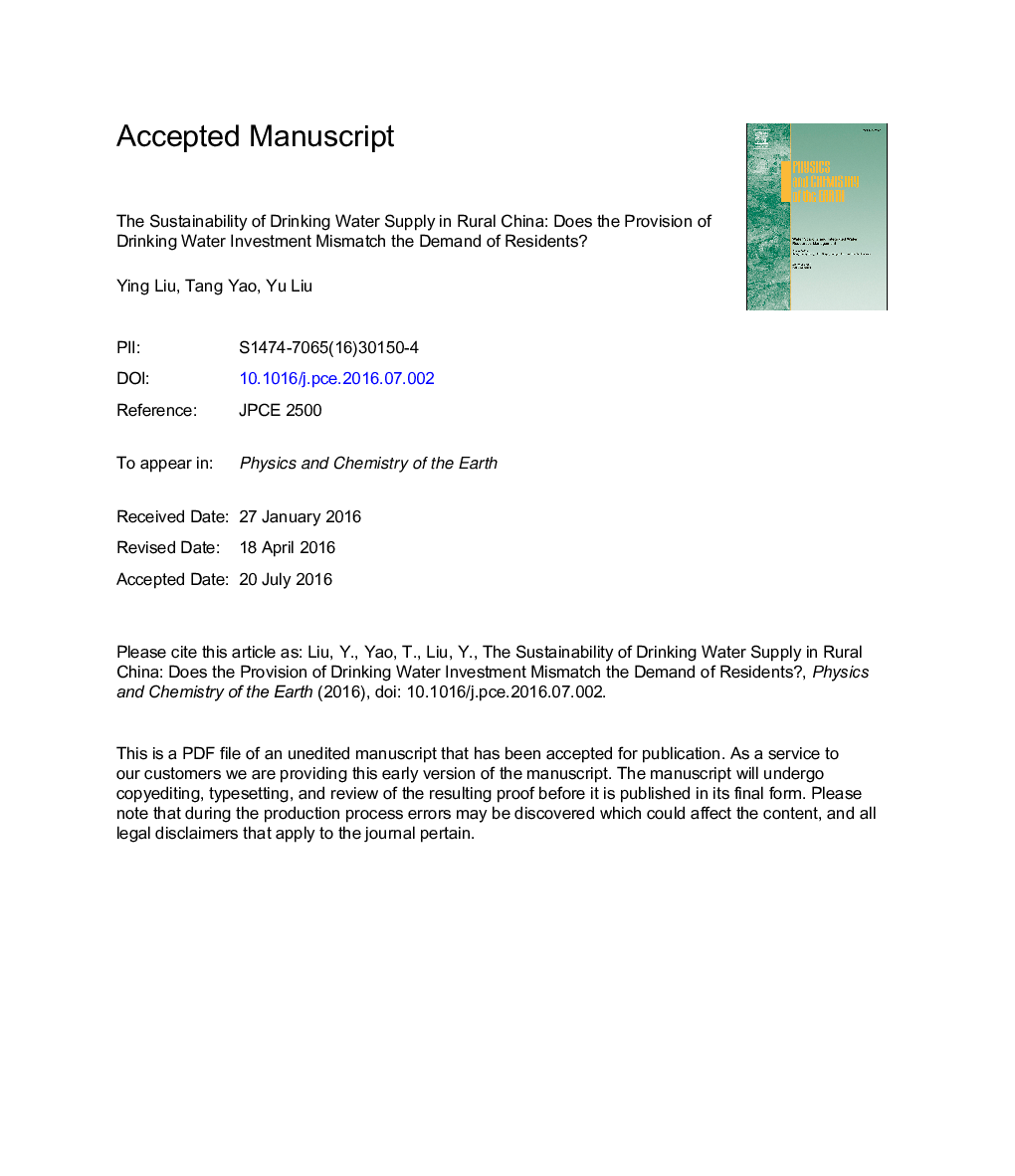| Article ID | Journal | Published Year | Pages | File Type |
|---|---|---|---|---|
| 5784638 | Physics and Chemistry of the Earth, Parts A/B/C | 2016 | 20 Pages |
Abstract
It is doubted that the top down nature of investment planning may lead to mismatches between drinking water investment and the demands of local residents in rural China. Statistical and econometric analysis based on data of 2020 rural households from five Chinese provinces from 1998 to 2011 are used to illustrate the linkage between demand for drinking water investment and construction of drinking water projects. Household's demand significantly affects drinking water projects implemented by upper level governments and implemented jointly, but is not significant in explaining the projects implemented by village. There is evidence to suggest that the demands of local leaders override those of households in the implementation of drinking water projects provided by village in the early stage of 2005-2008. The situation improves in the latter stage of 2008-2011when the village level participatory bodies begin to provide opportunities for households to voice their preferences on public goods investment. The results of this study imply that it is important to explore appropriate regulations and policies that enabling local cadres to better meet local demands of their communities to ensure the sustainability of rural drinking water supply.
Keywords
Related Topics
Physical Sciences and Engineering
Earth and Planetary Sciences
Geochemistry and Petrology
Authors
Ying Liu, Tang Yao, Yunli Bai, Yu Liu,
